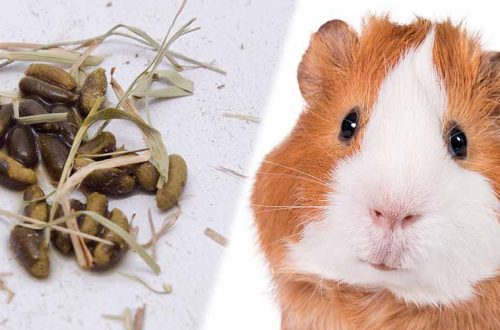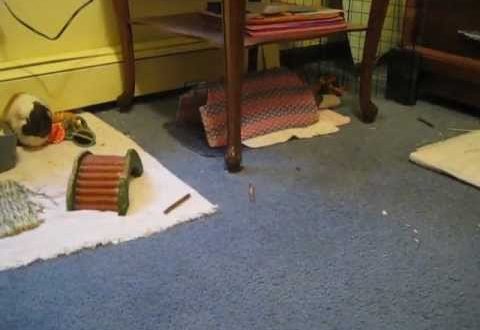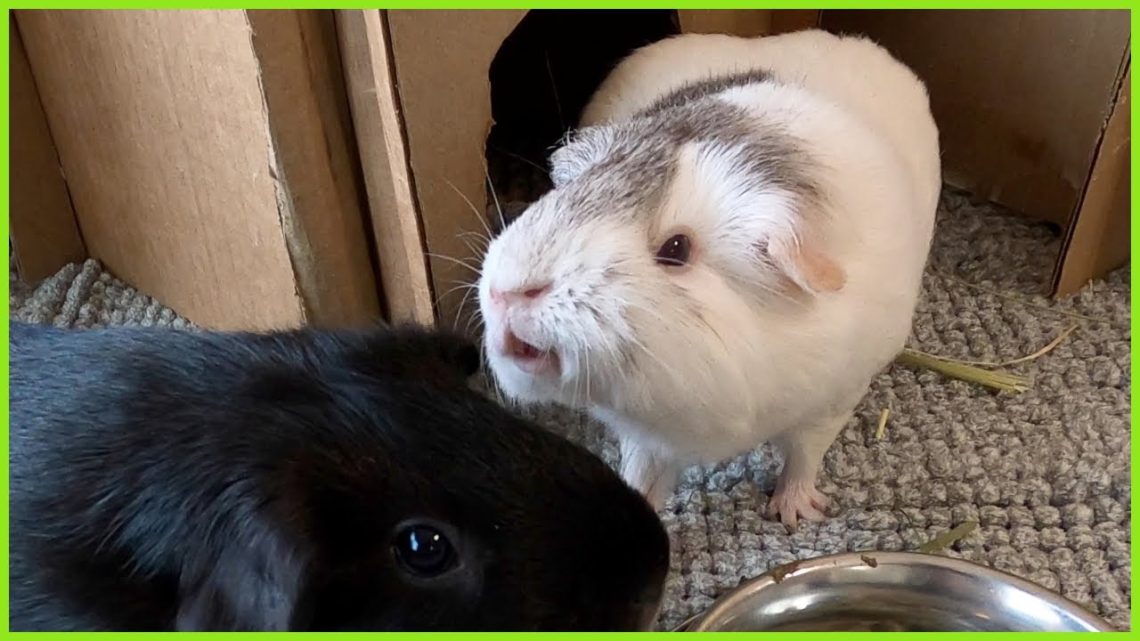
Cold, cough and runny nose in a guinea pig, what to do if she wheezes
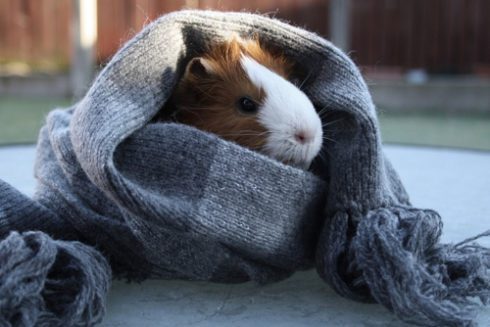
The maintenance of unpretentious charming guinea pigs at home is sometimes associated with unpleasant chores: the universal pet suddenly falls ill. A cold in a guinea pig occurs most often through the fault of the owner. As a rule, in case of violation of the conditions for caring for small pets. If a fluffy animal coughs, sneezes and refuses to eat, you should not hope that the animal’s body will cope with the pathology on its own. A cold is dangerous due to the rapid development of rhinitis, bronchitis and pneumonia. If left untreated, a sick pet can die in a few days.
Contents
- What causes a guinea pig to catch a cold
- How to understand that a guinea pig has a cold
- Guinea pig snot
- Why does a guinea pig cough?
- What to do with bronchitis in a guinea pig
- Guinea pig coughing while eating
- Inflammation of the lungs in a guinea pig
- Guinea pig is breathing heavily and wheezing
- Video: guinea pig respiratory disease
What causes a guinea pig to catch a cold
Nature has awarded funny animals with strong immunity, which is weakened by violation of the conditions of feeding and keeping. The cause of a cold in guinea pigs can be:
- hypothermia of the animal’s body when the pet is kept in a room with a temperature below + 18ºС;
- finding a small animal in drafts or near the air conditioner;
- insufficient wiping of the wool of your favorite animal after bathing;
- low-quality or rare change of raw filler and hay.
A family pet can catch a cold even from a person, so a sick owner should limit contact with the animal as much as possible until complete recovery.
How to understand that a guinea pig has a cold
The first signs of illness in a pet are severe lethargy and refusal to feed, a cold in a guinea pig is manifested by the following symptoms:
- a sick animal often sneezes and constantly rubs its nose, breathes heavily, coughs, sometimes wheezing is heard;
- the eyes become reddened and swollen, there is tearing, discharge from the nose and eyes;
- a sick animal lies motionless or sits;
- the coat looks dull and disheveled;
- there is an increase in body temperature.
It is possible to successfully cure a sick animal from a cold only with timely access to a specialist.
Self-treatment is fraught with the development of complications and deterioration in the health of the fluffy patient. If a funny animal has a stuffy nose, it is urgent to clear the nasal cavity of mucus to facilitate breathing and prevent the infection from descending into the bronchi and lungs.
It takes 2 people to clean the nose of a guinea pig. One fixes the animal in the supine position. while the other performs a therapeutic procedure:
- Place one drop of warm chlorhexidine solution into each nostril.
- Wipe the nasal speculum dry with a gauze pad.
- Drop children’s immunomodulatory drops “Derinat” into the nose.
- Put the animal on its paws.
After the procedure, a fluffy rodent develops a reflex sneeze, which clears the nasal cavity of mucus, pathogenic bacteria and viruses. Cleansing of the nose should be carried out 3 times a day for 5 days.
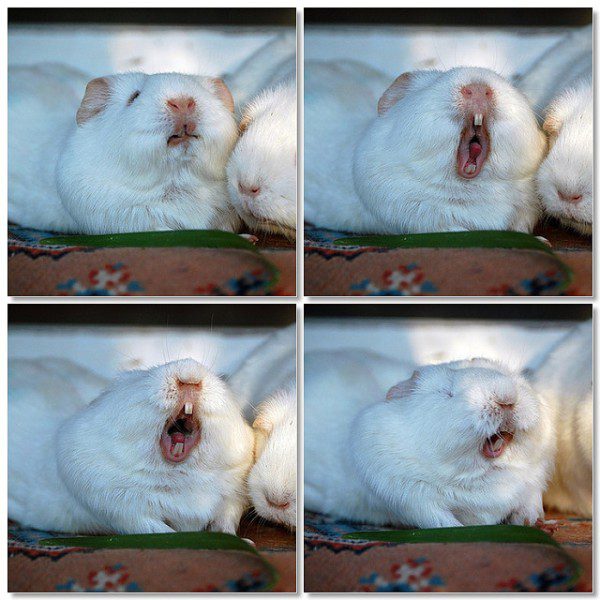
When rhinitis is complicated by inflammation of the eyes, coughing and wheezing, a veterinarian applies symptomatic therapy: washing the eyes with boiled water with instillation of anti-inflammatory drops, drinking expectorant decoctions of medicinal herbs, a solution of glucose with vitamin C and gamavit, a course of antibacterial or sulfanilamide drugs.
Guinea pig snot
A runny nose in a domestic rodent can be allergic or a symptom of a cold, as well as infectious rhinitis, bronchitis, or pneumonia. Allergic rhinitis is manifested by liquid transparent secretions. A furry pet may experience watery eyes, red eyes, skin rashes, and hair loss. The most common cause of such a runny nose in guinea pigs is the reaction of a fluffy animal to an allergen. It could be new litter, poor quality or banned food, hay, houseplants, chemicals, dust, or pungent odors. Treatment consists of removing the allergen and giving liquid antihistamines to children.
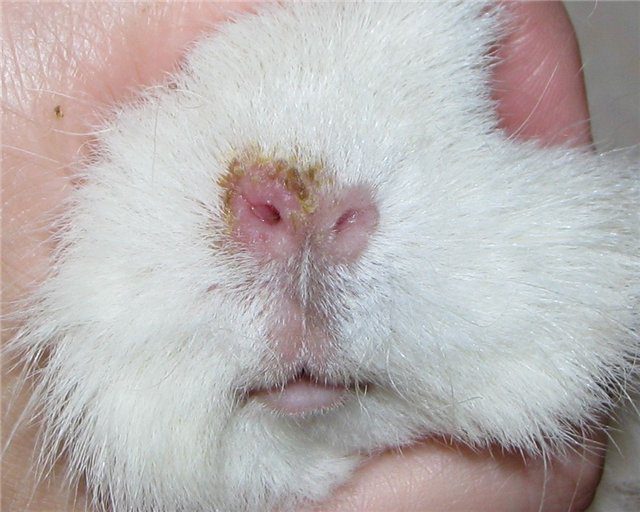
When a runny nose in a guinea pig is accompanied by lethargy and refusal to feed, you should immediately contact a specialist. Signs of a cold or infectious rhinitis may also include:
- the animal snorts its nose;
- constantly pulls the muzzle;
- mucopurulent discharge from the nose and eyes.
It is necessary to treat a runny nose in a guinea pig at the first signs of the disease, infectious rhinitis or a cold is quickly complicated by pneumonia and can cause the death of a beloved animal.
Therapeutic measures for a runny nose in a domestic rodent begin with the release of the nasal cavity of the animal from mucus. The nose should be washed with a solution of chlorhexidine and Derinat children’s drops should be dripped. With purulent discharge from the nose after washing, it is necessary to blow the Streptocid powder into each nostril twice a day. It has an antimicrobial bacteriostatic effect.
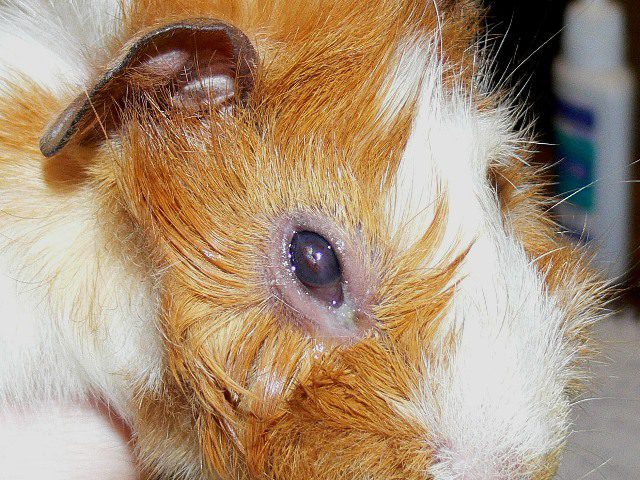
If conjunctivitis is observed with rhinitis, it is necessary to wash the eyes of a sick animal with boiled water twice a day, followed by instillation of anti-inflammatory drops. Often, with a runny nose, domestic rodents develop a cough, for the treatment of which it is necessary to give expectorant decoctions of anti-inflammatory herbs: breast collection, coltsfoot, nettle. When wheezing appears, the specialist prescribes a course of antibiotics or sulfonamides to the fluffy patient.
Why does a guinea pig cough?
Cough in a domestic rodent is a protective reflex of the animal’s body, aimed at cleansing the respiratory tract from irritating substances; in guinea pigs, cough is a symptom of the following pathologies:
- entry into the upper respiratory tract of a foreign body;
- cold;
- bronchitis;
- pulmonary edema;
- dental pathologies;
- pneumonia;
- parasitic diseases;
- heart failure.
Any kind of cough in a small pet should not go unnoticed by the owner. If a beloved rodent sneezes, coughs and wheezes, you should urgently seek the help of a specialist.
What to do with bronchitis in a guinea pig
The cause of bronchitis in a pet may be a complication of a cold or infectious rhinitis, keeping a funny animal in a dusty or smoky room, hypothermia, pathogenic microorganisms or parasites.
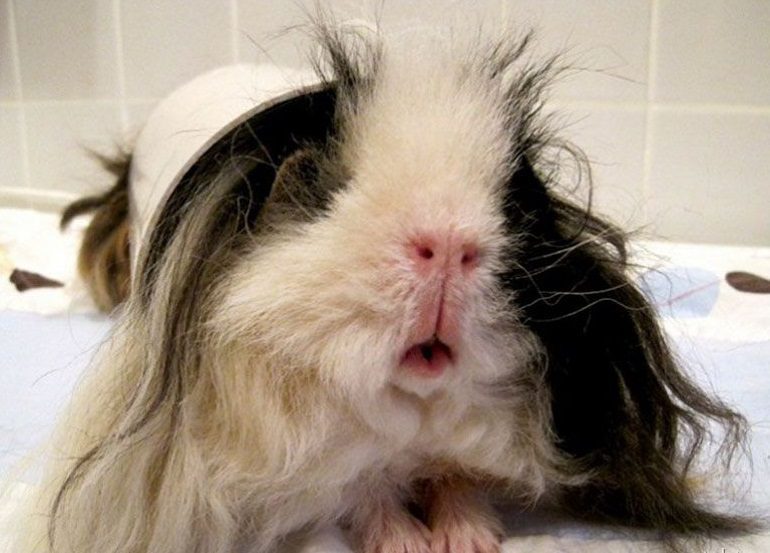
The main symptom of bronchitis is a strong dry debilitating cough, a sick pet breathes heavily, refuses water and food, purulent discharge is noted from the nose and eyes. If left untreated, the fluffy animal dies of exhaustion or a heart attack.
For the treatment of bronchitis, antimicrobials, vitamins, immunomodulators, expectorants, hormonal and anti-inflammatory drugs are used.
Guinea pig coughing while eating
If a beloved pet coughs, wheezes, squeaks when eating, often chokes on food, sorts out food, there is a decrease in appetite, weight loss and profuse salivation, you should contact a specialist to examine the oral cavity of a domestic rodent. A similar clinical picture is due to the pathological regrowth of the anterior and cheek teeth.
Dental diseases of guinea pigs are treated only in a veterinary clinic using anesthesia, the veterinarian, after a comprehensive examination of the fluffy rodent, grinds and polishes the regrown teeth.
Inflammation of the lungs in a guinea pig
Pneumonia in a guinea pig can be infectious or a complication of a cold, rhinitis, bronchitis, or pulmonary edema. Most often, pneumonia is observed in weakened animals and young animals in the spring and autumn periods, the cause of pneumonia can be keeping fluffy pets in a draft, in a damp or cold room, changes in temperature and humidity, and improper transportation. Concomitant factors are an unbalanced diet, a lack of vitamin C in the body of an animal, a lack in the menu of a small animal to a sufficient amount of fresh herbs, vegetables and fruits.
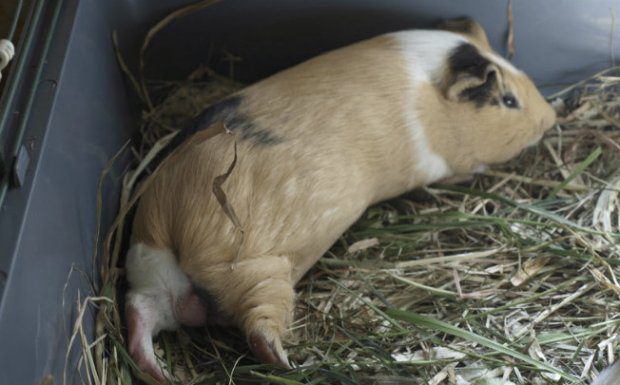
Guinea pigs have acute and chronic pneumonia. The acute form is dangerous with a rapid current. The pet has a severe fever, intoxication and exhaustion. He can die within 3-4 days from the onset of the disease. In advanced cases, treatment is not always effective. The chronic form does not have a pronounced picture. At the same time, it significantly shortens the life of your beloved pet. Pneumonia reduces the immunity of a funny animal, which often begins to get sick with infectious and contagious diseases, slightly loses weight.
The following characteristic symptoms indicate the development of pneumonia in a guinea pig:
- refusal of food and water;
- dry or wet cough, depending on the form and stage of the disease;
- heavy hoarse breathing with whistles and gurgling, the animal has shortness of breath, when inhaling, the sides rise characteristically;
- inactivity, lethargy, the oppressed animal sits, ruffled, in one place or lies, does not respond to the treat and the voice of the owner;
- a small animal sneezes, grunts, sniffs from the nose and eyes, viscous purulent discharge is observed;
- the nose is covered with dried crusts of pus, the eyes are red, swollen, the palpebral fissure sticks together and purulent contents accumulate in the corners of the eye;
- the coat is dull, disheveled, stuck together;
- guinea pig sleeps often and for a long time.
It is necessary to treat a pet animal at the first signs of the disease under the supervision of an experienced specialist. Insidious pathology may have hidden symptoms. Often there is a significant improvement, followed by a relapse, deterioration and death of a beloved animal.
Treatment
If the guinea pig is wheezing, the veterinarian will prescribe a course of antibacterial or sulfa drugs. These include: “Baytril”, “Sulfazin”, “Sulfadimezin”. Medicines are used in a course only after determining the reaction of the animal’s body to the drug. Simultaneously with antibacterial therapy, it is necessary to give the patient probiotics: Linex, Vetom, Bifidumbacterin.
Every day it is necessary to carry out the toilet of the nose of the animal with the cleansing of the muzzle from crusts of pus and washing with a solution of chlorhexidine. After draining the nasal mirror, it is recommended to blow Streptocid powder into each nostril twice a day.
In case of inflammation of the eyes, it is necessary to wash the eyes of the animal twice a day with a sterile saline solution, followed by instillation of anti-inflammatory drops “Tsiprovet”, “Tsipromed”.
To eliminate a cough, it is necessary to give the pet an expectorant collection of anti-inflammatory herbs to drink or give the animal a drop of Bromhexine baby syrup.
To restore immunity and increase the body’s resistance to colds, drinking an increased dose of ascorbic acid with glucose, gamavit and echinacea tincture is prescribed for the pet.
In the diet of a sick pet, it is necessary to introduce an increased amount of green grass, vegetables and fruits. With a complete refusal of food, it is necessary to feed the animal with pasty food from an insulin syringe without a needle. Small portions should be given 5-6 times a day.
Guinea pig is breathing heavily and wheezing
Cough is a characteristic symptom not only of respiratory pathology, but also of heart failure. This condition requires immediate first aid and long-term treatment under the supervision of a veterinarian.
Heart failure or heart attack in guinea pigs is manifested by the following symptoms:
- the beloved pet wheezes when breathing, breathes very often and quickly, gasps for air;
- the animal coughs strangely, chokes, shortness of breath is observed;
- there is inactivity, apathy, lethargy;
- pet’s fingers are cold and blue;
- there may be a lack of coordination, convulsions.
To stop a heart attack and asthmatic syndrome, it is urgent to drip 2 drops of cordiamine or carvalol into the mouth. After bringing a cotton swab with aromatic oil to the nose of a fluffy animal. Next, inject the animal with an injection of aminophylline, dexamethasone and furosemide in one syringe. Treatment of heart failure is based on long-term use of drugs. They support respiratory and cardiac activity. With frequent repetition of heart attacks and in advanced cases, it would be reasonable to euthanize a small animal.
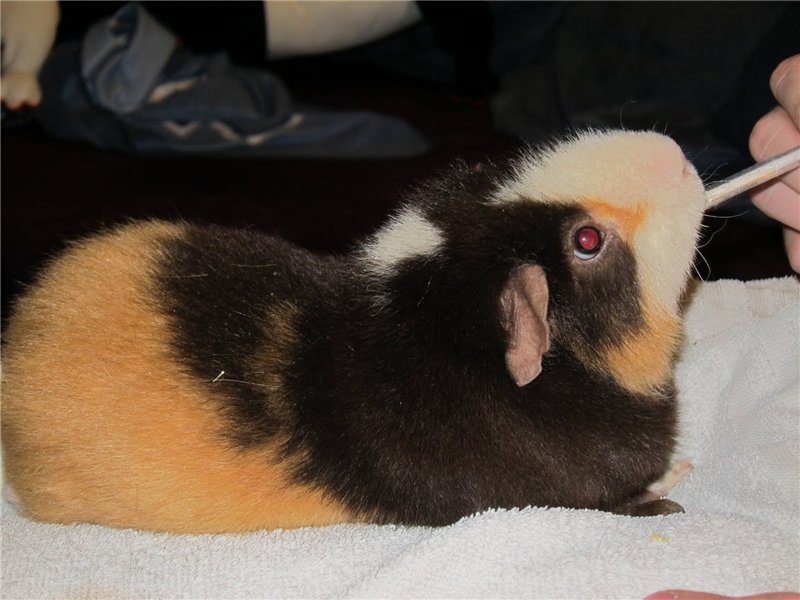
The owner of a guinea pig must follow the rules of feeding and keeping to maintain the health of a fluffy animal. If food refusal, coughing, sneezing or wheezing occurs, treatment should be started immediately. The success of therapeutic measures directly depends on the timeliness of contacting an experienced specialist.
Video: guinea pig respiratory disease
How to treat colds, coughs and runny noses in guinea pigs
3 (60.39%) 51 votes



